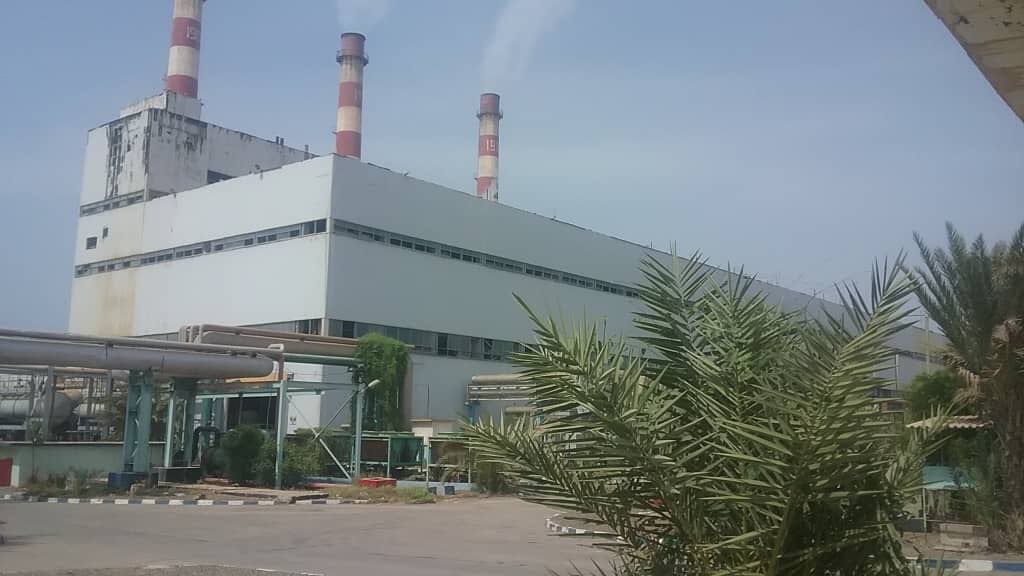The electricity crisis in Yemen – which escalated during the recent period, with the decline in fuel supplies needed to operate the stations – prompted the Fuel Purchase Tenders Committee to submit a collective resignation to the government.
Today, Monday, June 19 (2023), the participating members of the committee and representatives of (Ministry of Electricity and Energy – Ministry of Oil and Minerals – Aden Refinery Company) announced their resignation from work for several reasons, including accusing the government of failing to develop radical solutions to the crisis.
In the resignation statement – which was seen by the specialized energy platform – the committee said that it had worked over the past years with sincerity and redoubled efforts, and despite all the obstacles it faced, enduring the effort to secure and stabilize the supply and operation of power plants in Yemen.
inappropriate mechanism
The committee indicated that the mechanism used to purchase fuel for power stations in Yemen created an environment that is not suitable for the work of the Tenders Committee, which prevents the application of the articles and requirements of the Tenders Law and its implementing regulations.
Yemen is currently experiencing an acute financial crisis, and is facing one of the worst humanitarian and economic crises in the world, especially with the cessation of oil exports in the wake of the Houthi group’s attacks on export ports.
Fuel for power stations in Yemen constitutes a heavy burden on the government, as it drains a large amount of the country’s revenues. The Saudi oil derivatives grant has worked during the past two years to mitigate the crisis.
The committee called for addressing the reasons that prompted it to resign, explaining that the approval of the Prime Minister to purchase fuel for power stations comes in parts in small quantities from 3 thousand to 10 thousand tons, and after the power stations’ stock of fuel has been depleted in violation of Article No. (20) of the executive regulations of the Law Tenders No. (23) of 2007, which does not allow for the tender to be released at appropriate times.
She said that the Ministry of Finance and the Central Bank are not committed to financial reinforcement and the payment of suppliers’ dues on a regular basis, as the failure to pay the suppliers’ dues for several months led to the freezing of the suppliers’ funds, and then their reluctance to submit their offers, and whoever advances sets unfair conditions by raising bid prices, taking advantage of the depletion of fuel stocks. Power stations in Yemen.
Quarterly tenders
The committee confirmed that it had requested several times to be able to issue tenders on a regular basis, in quantity, quarterly, every 3 months, according to a planned program for the arrival of shipments, so that tenders will be launched when the fuel stock in power stations in Yemen reaches 50% to ensure the continuation of the regularity of tenders and not reach bottlenecks due to depletion of stock. .
She referred to her demand to open a documentary credit at the Central Bank to ensure the entry of foreign companies, at the cheapest prices, and to bring shipments from their sources, which provides huge amounts of money for the state treasury, which was rejected by the Prime Minister.
In its resignation statement, the committee stressed that the conditions do not provide the minimum requirements for work in accordance with the Tenders Law and its executive regulations, leaving room for new blood to work in better conditions than the ones in which they work.
electricity in Aden
Aden and many Yemeni cities are witnessing frequent power outages of up to several hours, with the advent of the hot summer.
The Yemeni government confirmed earlier that it spends more than $55 million per month on generating electricity in Aden, at an average of $1.8 million per day.
For his part, the official spokesman for Aden Electricity, Nawar Abkar, said that the collective resignation of the members of the Tenders Committee for the purchase of electricity fuel in Yemen is conclusive evidence of the government’s intention to buy fuel by direct order from the commercial market and not to work according to the law and purchase by issuing a tender that allows competition by advanced merchants.
Earlier, he added, in press statements today, Monday: “The prime minister buys small quantities when electricity fuel is completely depleted from the stock and is not committed to purchasing through tenders when the fuel stock reaches 50%, and this point is sufficient to hold the prime minister accountable for violating the law.”
Earlier, he called on the Presidential Leadership Council to resolve the problems between the Presidency of the Government and the local authority of the capital, Aden, and oblige the government to secure fuel for power plants regularly, by purchasing monthly quantities and before stocks run out during the summer, and to work with real and sustainable remedies for the coming summer.

Leave a Reply